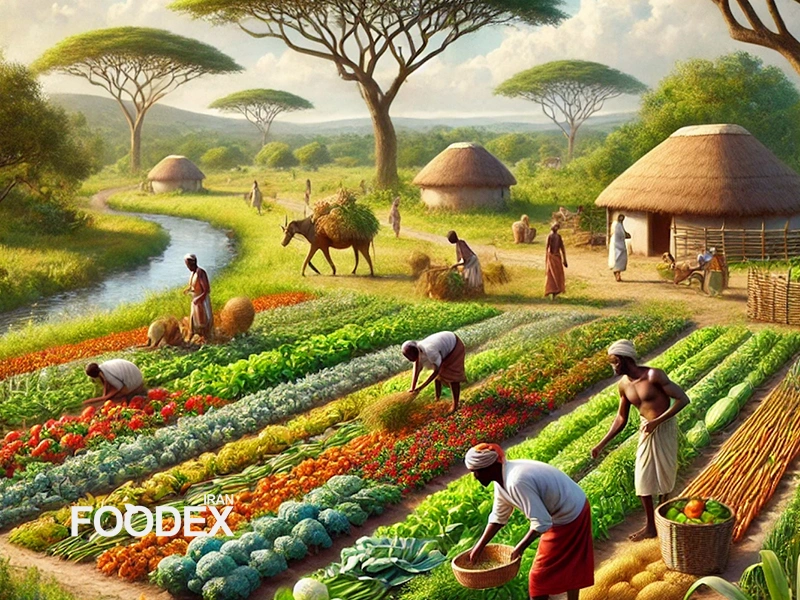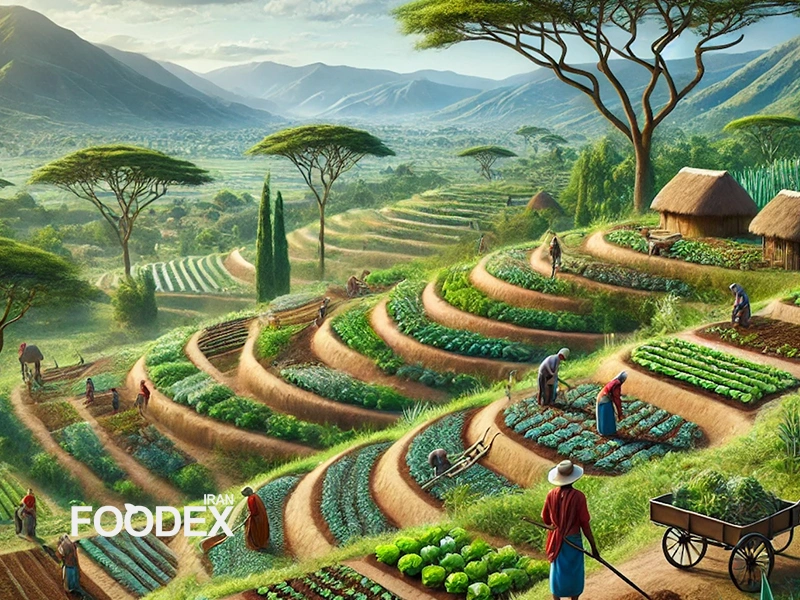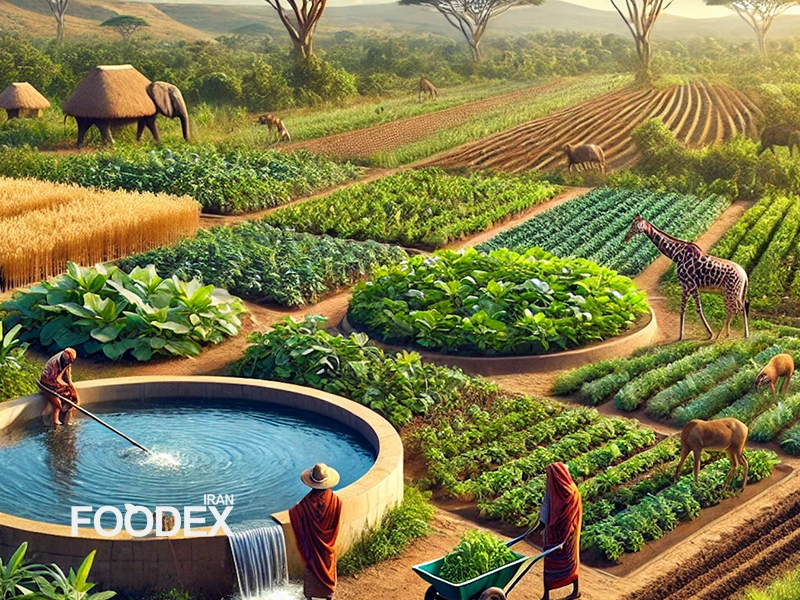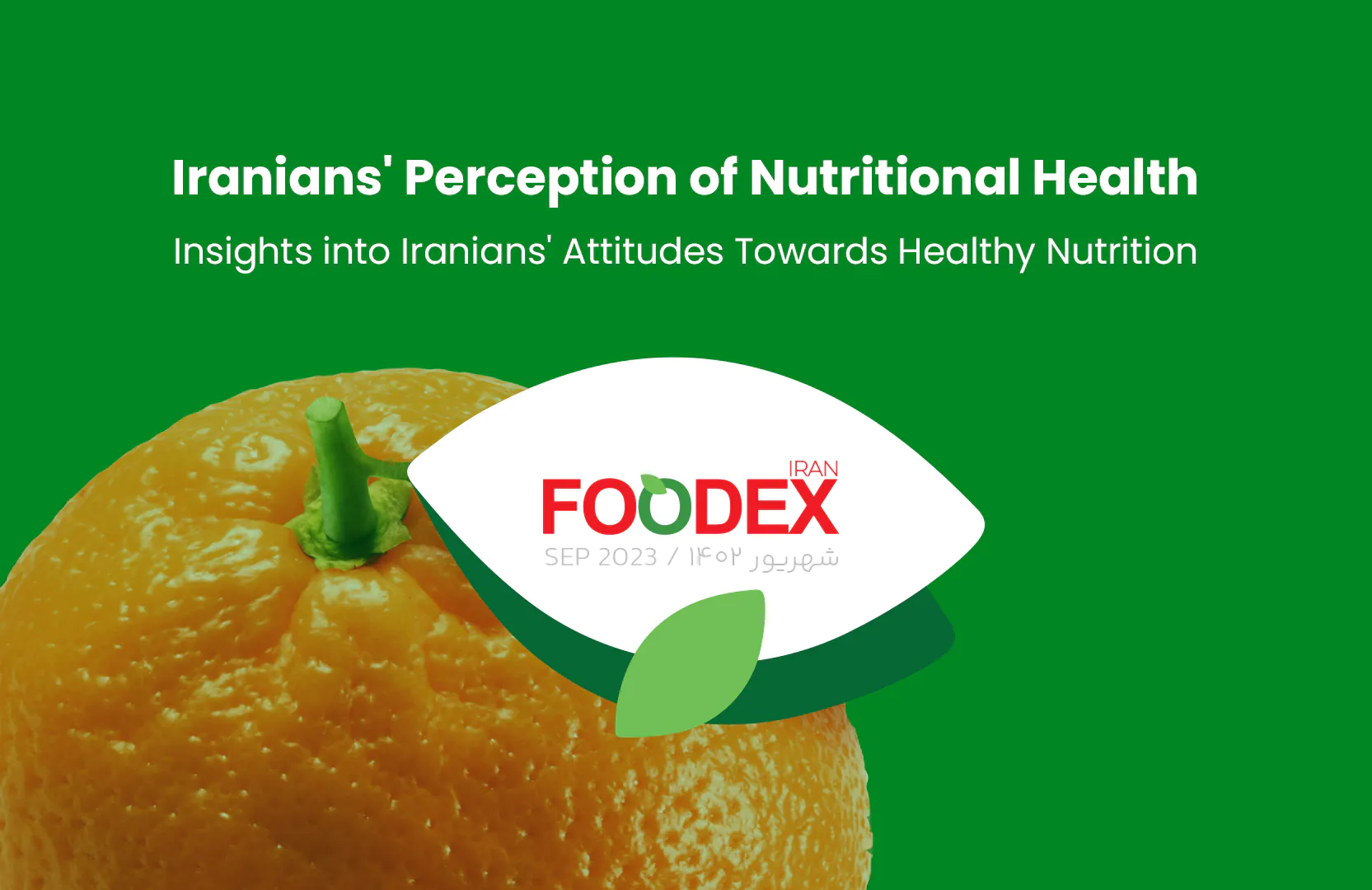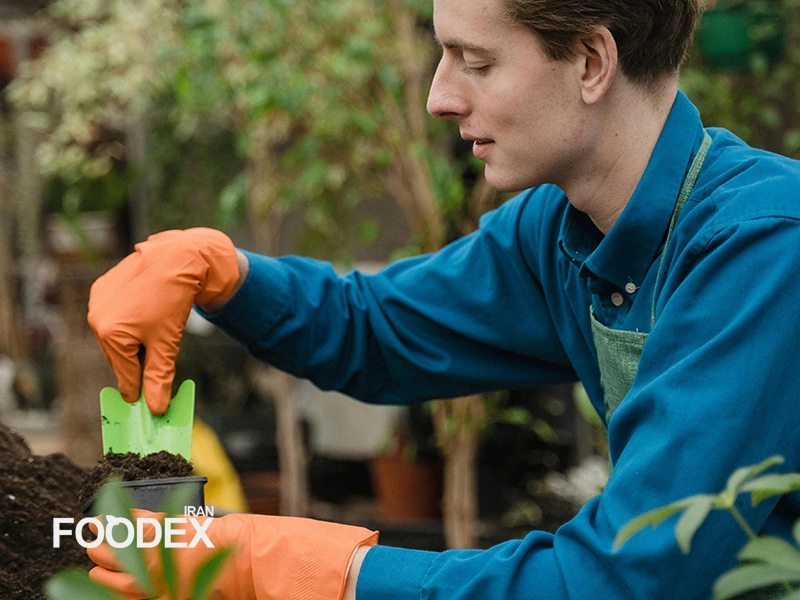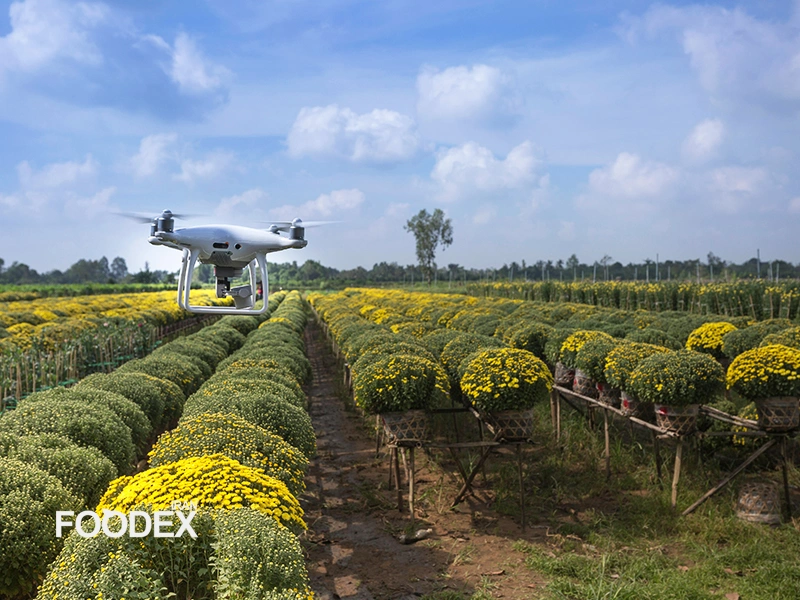Africa is a land of immense natural resources and biodiversity, growing in importance for international food and beverage markets. Be that as it may, environmental issues on the continent are severe. Increasing demand for food coupled with traditional farming and unsustainable agriculture has put extreme pressure on natural resources in Africa. In this article, initially published in Foodex Industry Magazine, we examine the challenges faced by African agriculture and develop some sustainable solutions to protect the environment with simultaneous economic growth.
Sustainability Challenges in African Agriculture
Africa has a place among the world’s most crucial agricultural production regions. Therefore, a set of challenges poses an imminent threat to environmental sustainability. These challenges arise due to various factors, including improper use of natural resources, climate change, and increasing pressure on agricultural lands. Let’s focus on some of the critical issues.
Natural Resource Degradation
Soil degradation is considered one of the fundamental problems facing African agriculture. Most farmers use land without adhering to the principles of sustainable farming. As a result, soil erosion occurs, the soil quality deteriorates, and agricultural production is threatened. This, in particular, can be seen in the regions of East and West Africa.
Biodiversity Loss
As more agricultural produce is in demand, much of the land covered by forests and natural habitats is now utilized for crop production. Deforestation to supply food has emerged as one of the significant causes of the loss of many plant and animal species throughout Africa.
High Water Usage
Water, a vital agricultural component, is becoming an element of crisis in much of the African sub-continent. The traditional and wasteful irrigation methods have brought about tremendous wastage of water potential. The repercussions, particularly severe in arid and semi-arid regions, have seriously affected farming and drinking water supplies.
Overuse of Chemical Fertilizers
The widespread use of chemical fertilizers to increase production has damaged the environment and human health. These fertilizers contaminate soil and water and deplete the nutrients in the soil, thereby decreasing agricultural productivity.
Agricultural Data and Statistics in Africa
The FAO estimated that 65 percent of agricultural lands in the continent are degraded through erosion and misuse. The African continent lost over 40 percent of its forests in the past half-century to agricultural expansion. Meanwhile, 70 percent of its water resources go to agriculture. However, most of it goes to waste because of improper irrigation techniques.
Sustainable Agricultural Solutions in Africa
Innovative means and techniques are, hence, called upon to resolve the environmental challenges in ways that contribute towards sustainable agricultural development in Africa. These are directed toward ensuring resource conservation, improving yields, and reducing ecosystem damage.
Conservation Agriculture
A particularly effective means for combating soil erosion and natural resource degradation has been the use of conservation agriculture. This technique comprises reduced or minimal tillage, maintaining vegetation cover, and intelligent management of water resources. Conservation agriculture not only sustains the quality of soil but also brings about more returns with its long-term efficiency.
Smart Irrigation
It comprises various techniques like drip irrigation that allow water to drip right into the roots with almost negligible waste. Technology applicable mainly in regions under high demand for water resources may see vital improvements in efficiency with its help.
Organic Farming
Organic farming involves the avoidance of chemical fertilizers but also utilizes natural fertilizers and biological alternative techniques. This approach protects the environment and helps produce healthier, finer products that benefit human health.
Diversification of Agriculture
Helps to reduce the risks associated with soil destruction and loss of habitat. This method of diversification also protects local ecosystems and contributes towards the environmental sustainability of the particular area.
Africa’s Agricultural Potential: Turning Challenges into Opportunities
Read MoreAfrica: Sustainable Future of Agriculture
Africa can face environmental challenges by adapting modern technologies and sustainable approaches. Collaboration by governments, international organizations, and the private sector will go a long way in promoting these methods. Solutions such as conservation agriculture, smart irrigation, and organic farming can balance agricultural growth with environmental protection.
Sources
FAO (Food and Agriculture Organization) – Insights on the environmental impact of agriculture in Africa.
World Economic Forum (WEF) – Reports on the role of sustainable agriculture in Africa’s future growth.
World Bank Environmental Reports – Data on the environmental challenges and solutions for African agriculture.
Ehsan Allahverdi
Executive Manager of Foodex Iran
Marketing Consultant for Leading Food & Beverage Brands
website | linkedin

